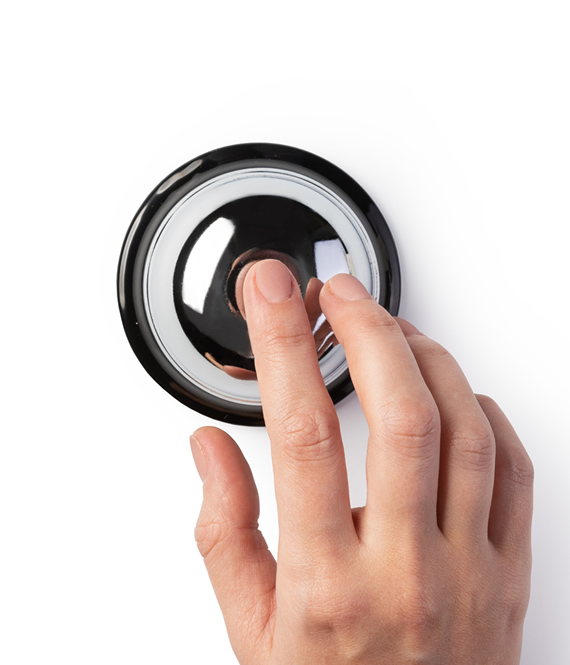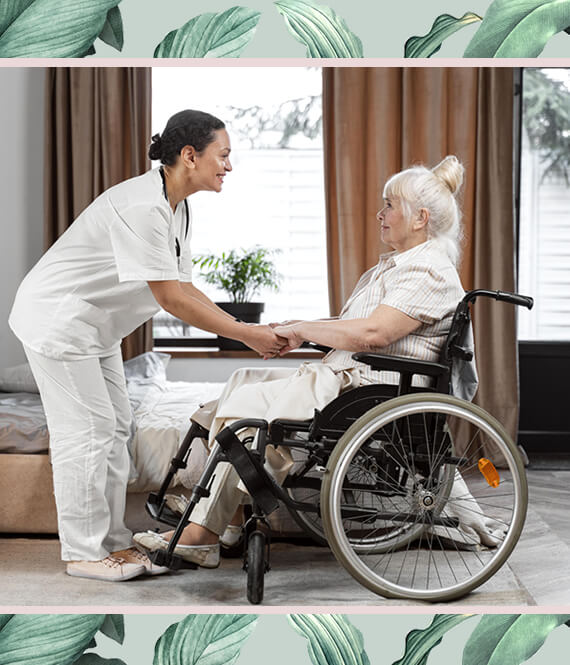
Palliative vs. Hospice Care: What’s The Difference?
We recommend helpful products in our articles. Read our full disclosure here. The content on this website is not intended to be a substitute for professional advice, diagnosis, or treatment.
Facing the final stages of life elicits as many questions as it does emotions.
Appreciating each day, getting affairs in order, managing discomfort—it feels overwhelming.
You shouldn’t travel this road alone without specialized support along the way.
Two common options providing such care—palliative and hospice care—are differentiated in nuanced ways.
Both aim to improve quality of life but take distinct approaches at different junctions of one’s illness.
Equipping yourself to make an informed decision regarding which care perspective aligns best will provide comfort in the days ahead.
Take it step-by-step and keep the end goal of self-care and meaning at the forefront.
Defining Quality End-of-Life Care
As you navigate a severe illness, ensuring care aligns with your values provides solace amid adversity.
High-quality home care eases discomfort and empowers you to define life’s closing act on your own terms.
Palliative care and hospice cater to the multifaceted challenges serious illness brings.
They journey with you, providing an extra layer of support when you need it most.
Discerning where each one fits into your care continuum will help you weave their strengths into a personal care quilt, offering warmth this difficult season.
Move forward informed so you can devote energy to moments that matter most with minimal distraction weighing you down.
What Is Palliative Care?
Palliative care supports you throughout the stages of dying, focusing more on comfort during life than distress nearing its end.
Serious illness takes a physical and emotional toll, dimming the vibrancy of day-to-day living.
Palliative care aims to minimize suffering and restore quality along your journey, no matter the road ahead.
You can access it early after diagnosis alongside medical treatments or when symptom management becomes the main priority.
The goal is to equip you to take each day as it comes and find meaning amid adversity, however long the season lasts.
Services Palliative Care Provides
Working alongside your other providers, palliative services aim to alleviate discomfort and empower you to maintain engagement in life.
Depending on your priorities, customized support may involve:
- Alleviating distracting symptoms;
- Processing grief with counseling;
- Clarifying care goals and options;
- Accessing community resources;
- Practical assistance to lessen daily burdens.
The right combination of services enhances wellness despite illness.
Palliative care offers an open door for any needs arising along your journey, whenever they occur.
Transitioning To Hospice Care
As serious illness progresses, you may reach a point where palliative care no longer adequately supports your needs.
When life-prolonging treatment no longer proves beneficial, hospice care comes alongside to help you close this final chapter gently.
The transition signals acceptance that the road ahead leads to the journey’s end.
With little likelihood of reversing course, the focus shifts wholly to comfort and closure.
Hospice care then personalizes the needed physical, emotional, and spiritual support during the last stretch, however long or short it may last.
Qualifying For Hospice
When curative treatment no longer improves the quality of life, hospice care presents a supportive alternative.
To qualify for this special end-of-life care, doctors must estimate you have six months or less to live given your illness trajectory.
However, prognostic timelines prove imperfect, so some hospice programs allow earlier enrollment if your case warrants additional support.
Regardless of timing nuances, the priority becomes comfort care when the balance tips from quantity to quality of life.
Hospice helps you make the most of this poignant season, offering symptom relief, counsel, and practical assistance—holding space for you to live each moment to the gentle end.
Hospice Care Team
To deliver this care, hospice utilizes a wider interdisciplinary team than typical treatment settings.
Your hospice team may comprise:
- Doctors;
- Registered nurses;
- Counselors;
- Social workers;
- Chaplains;
- Home health aides;
- Volunteers.
This team develops a customized care plan tailored to you.
Their goal is fully managing symptoms so you can devote energy to what matters most—enjoying life and loved ones.
Hospice services are provided wherever you call home.
Comparing Palliative Care And Hospice
While hospice and palliative care share some commonalities, recognizing their differences allows you to utilize them most effectively.
- Goal: Palliative care eases symptoms while continuing treatment to potentially prolong life.
Hospice focuses solely on comfort care at the end of life.
- Timeline: You can receive palliative care at any point for as long/needed.
Hospice typically starts when little can be done medically, often in the last six months.
- Location: Palliative care works alongside other inpatient/outpatient treatment settings.
Hospice mainly provides at-home care.
- Covered Services: More palliative services involve medical interventions necessitating insurance reimbursement.
Hospice limits medical procedures, emphasizing personal support.
Gaining clarity on these nuances will help you seek the care option that fits your needs best.
Conclusion
Debilitating illness burdens well-being.
Palliative care and hospice play a vital role in easing this hardship through compassionate support.
Recognizing each one’s place on the care continuum allows for fully harnessing their benefits.
Seeking this assistance on your own terms can lend comfort, meaning, and peace during difficult days ahead.
"We love to research problems, examine studies, analyze solutions, and share with you ideas that make life healthier. You can learn about us and our editorial standards here. Have suggestions or feedback to share? Send us a message!."













Leave a Comment